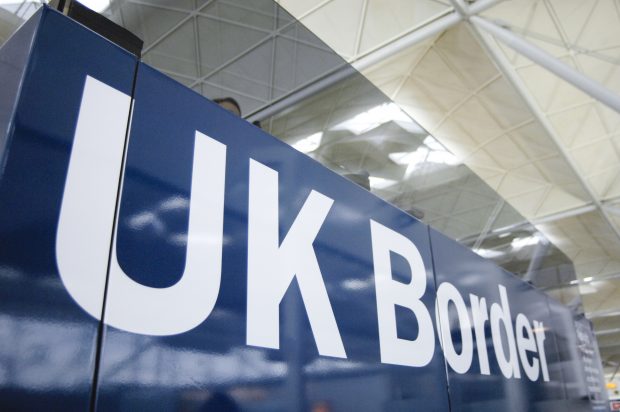Consultation proposes granting IAA power to fully investigate criminal activity without police support
The Government yesterday announced that new proposals by the Home Office will grant the Immigration Advice Authority (IAA) powers under the Proceeds of Crime Act 2002 (POCA) to fully investigate criminal activity and recover the proceeds of crime independently of the police, strengthening its ability to combat rogue immigration advisers.
 According to the Home Office, the changes will be made following a consultation running until the end of the year. They build on new powers in the Border Security, Asylum and Immigration Bill, under which people found posing as immigration lawyers could face fines of up to £15,000.
According to the Home Office, the changes will be made following a consultation running until the end of the year. They build on new powers in the Border Security, Asylum and Immigration Bill, under which people found posing as immigration lawyers could face fines of up to £15,000.
A consultation document was published yesterday by the Home Office on changes to bodies granted investigatory and other powers under the Proceeds of Crime Act. It can be read online here.
The consultation proposes giving the IAA a range of POCA powers, including the ability to restrain and seize assets, recover cash and crypto, execute search and confiscation warrants, and investigate money laundering.
According to the Home Office, these powers would allow the IAA to trace the financial assets of individuals providing illegal immigration advice and recover the proceeds of their crimes without police assistance. The Home Office says such measures would strengthen the IAA's ability to disrupt illegal activity and create a deterrent effect, thus protecting people seeking immigration advice.
The consultation noted: "IAA currently has no financial investigation capacity. However, IAA investigations have in the past have had ad hoc support from other POCA-enabled bodies. These investigations have resulted in compensation orders being granted and victims being recompensed where they are victims of illegal immigration advice and / or services."
Previously in its May 2025 impact assessment on increasing powers for the Immigration Services Commissioner (ISC) under the Border Security, Asylum and Immigration Bill, the Home Office said new powers were needed to tackle both poor and illegal practices effectively.
In 2021/22, the OISC (now IAA) opened 92 new complaint investigations into regulated advisers, inspected 67 businesses, and investigated 37 cases of illegal advice. Four regulated organisations had their registration cancelled, and two unregulated advisers were convicted. In 2023/24, the regulator opened 90 complaint investigations, inspected 79 organisations, and cancelled or refused registration for three businesses. It also investigated 13 new cases of illegal advice and continued 43 ongoing investigations, securing two prosecutions that resulted in suspended prison sentences for fraud and providing immigration advice while unregulated.
The impact assessment explained: "Although significant numbers of complaints are investigated and inspections conducted with findings made against advisers, there are limited numbers of cancellations or prosecutions. This is due to the evidence needed and high burdens of proof required to justify the cancellation of registration, or to take forward a criminal prosecution. The action which can be taken by the Commissioner is often limited to issuing warnings to those unwilling to improve with no ability to enforce improvement or cessation of poor quality or illegal advice provision."
Under the Border Security, Asylum and Immigration Bill, the ISC will gain powers to impose financial penalties on both unregulated and registered IAA advisers who breach professional standards, require compensation or fee refunds for clients harmed by poor advice, and compel cooperation in investigations. The authority would also be able to suspend advisers immediately in cases involving suspected serious misconduct.
Summing up the need for increased powers, the impact assessment stated: "Introducing extended powers to the ISC, giving greater parity to those of the [Solicitors Regulation Authority], including financial sanctions for non-compliance, aims to strengthen the regulatory regime and improve the quality of advice and services. These powers would enable the ISC to fine advisers or organisations for fitness or competence issues, encouraging regulatory compliance and deterring repeat offending. Financial sanctions for persistent lower-level offences would ensure better applications and advice standards. Additionally, civil financial sanctions for unregulated advisers would act as a deterrent, reducing illegal advice provision. The ability to compel restitution for victims of poor or illegal advice would create better outcomes and incentivise complaints, enhancing the ISC's regulatory and enforcement activities. The measures within the bill to improve the powers to investigate poor practice, such as compelling advisers to cooperate, and the power to immediately suspend advisers all allow the ISC to be more effective in gathering information, protecting clients, and better deal with poor standards of immigration advice. The proposed measures for financial sanctions and immediate suspension will come with a right of appeal to the First Tier Tribunal."